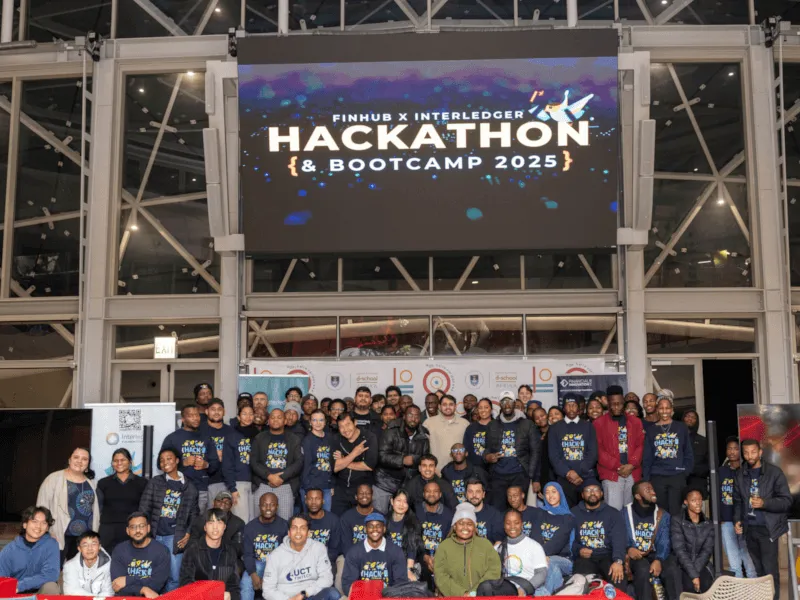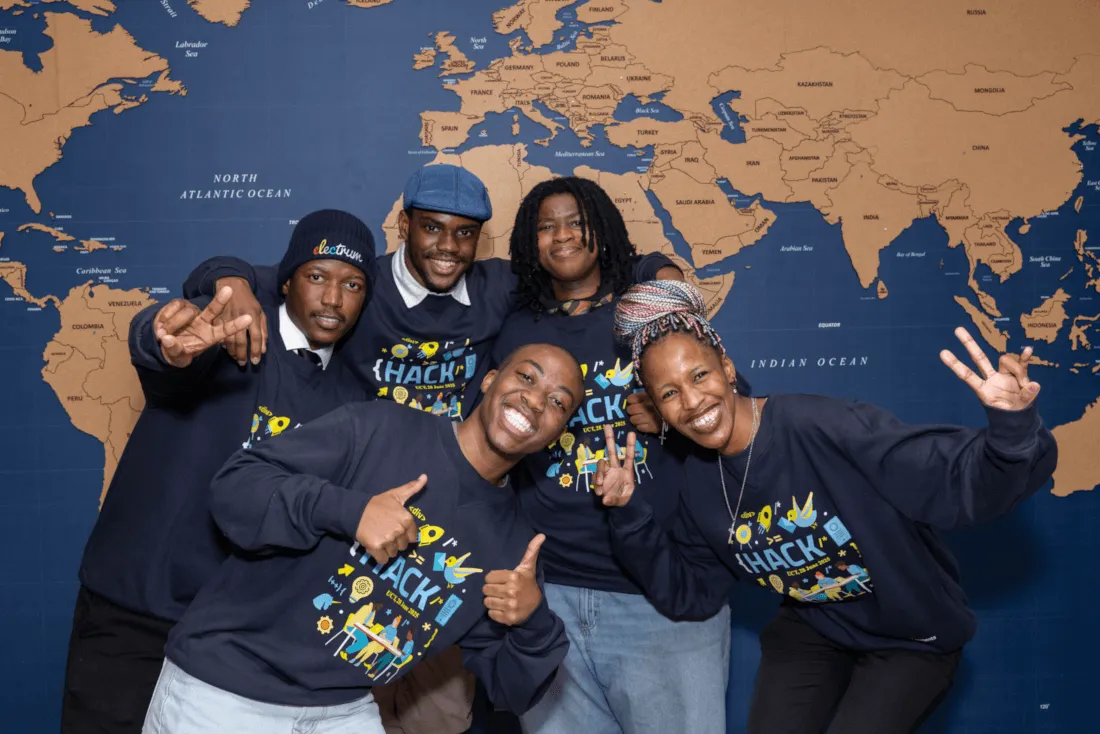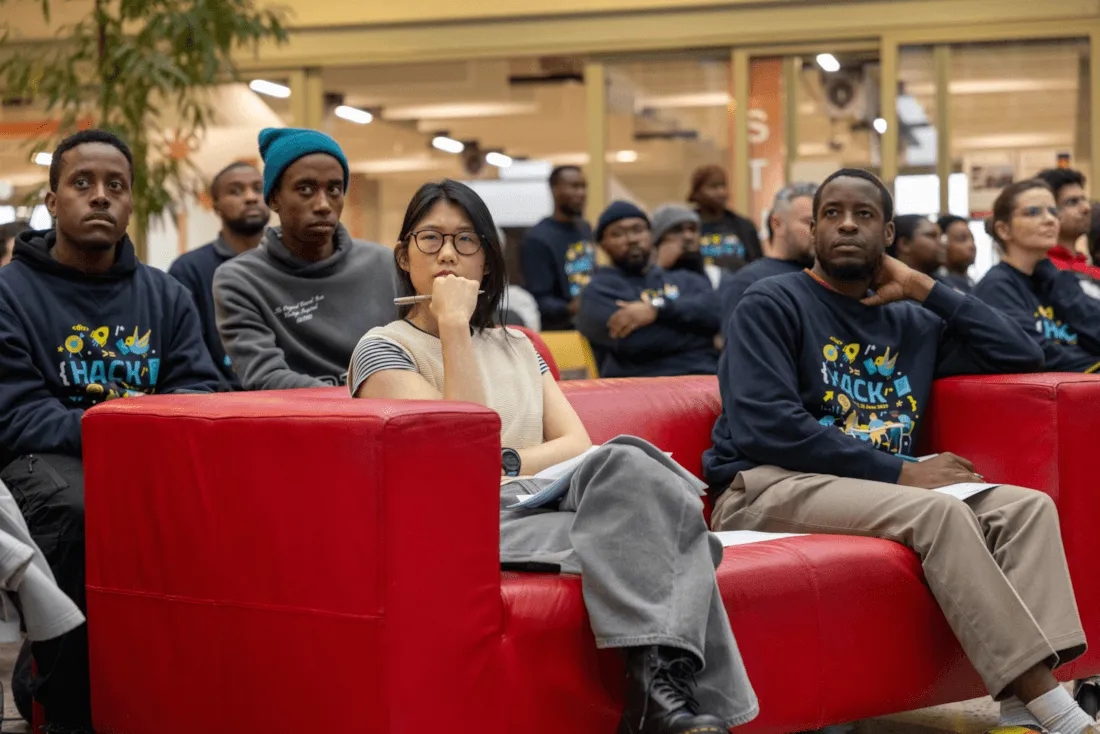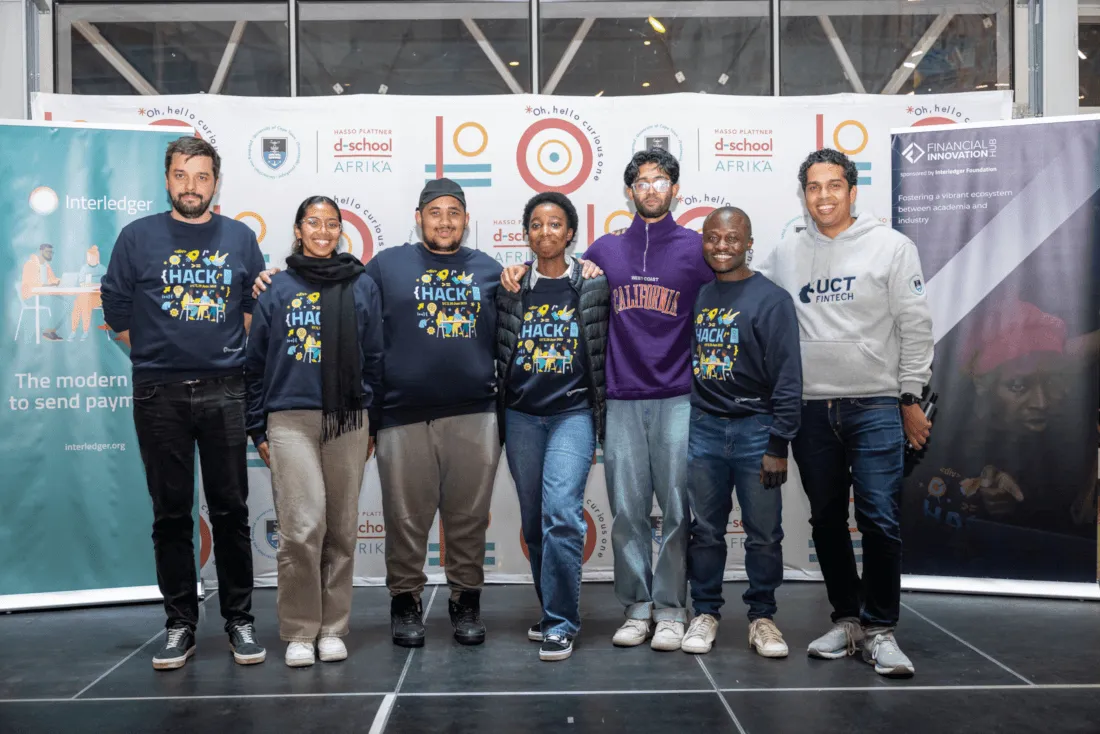
The UCT Financial Innovation Hub and Interledger Foundation Hackathon
Cape Town, South Africa - A week-long bootcamp of lectures by global representatives of the Interledger Foundation preceded the University of Cape Town (UCT) Financial Innovation Hub and Interledger Foundation Hackathon that kicked off in the early morning of Saturday, 28 June 2025.
Hosted at the UCT campus, tutorials, lectures and practical sessions were presented daily to prepare students for the Saturday event – which requested teams to use the Interledger Protocol to develop real-world solutions for real-world South African problems.
The content included Web Monetization, the Interledger network and integrators, Rafiki middleware case studies in Jordan and Mexico, and the various opportunities that Open Payments systems offer to create experiences that offer people more choices, control and convenience.
The opportunity for Open Payments
Dr Allan Davids, Director of the Financial Innovation Hub, says, “These days, we’re seeing many more different systems that ultimately need some way to talk to one another. For many years, we’ve taught this FinTech curriculum, and we’ve focused on the impact that these technologies are likely to have on payment systems, but there’s one fundamental problem – it’s very difficult to move money across systems. So we need a payment standard that is going to be open source, that is going to be interoperable, that is going to allow us to move money easily from different payment mediums in this increasingly diverse world, and the Interledger open technology does just that.”
The Hackathon!

Guava Script team - Vuyo Mnisi, Khomisani Manganyi, Hibron Masekoameng, Naledi Lehoke, Olesedi Kwetsi
At end of day on Friday, students from the University of Cape Town, the Cape Peninsula University of Technology, the University of the Western Cape and Eduvos teamed up to start preparing for the Saturday Hackathon. The teams included disciplines such as computer science, data science, fintech, computer and electrical engineering and statistics all working together to develop technological solutions for real problems, each contributing their own learned skillsets into product-based technology.
With 12 teams in deep discussion, Saturday looked promising.
Early Saturday morning, mentors started circulating throughout the rooms to assist each team with practical challenges. The mentors included Dr Davids and the tech mentoring team from Interledger: Sid Vishnoi, Radu Popa, Max Kurapov, Anca Matei, Nathan Lie, Bogdan Radu, Stephan Butler, Adrian Boros and Sarah Jones.
Real-world solutions
“Many of the problems that I’m seeing students trying to solve are often related to issues such as the co-ordination of multiple different parties that may be involved in the facilitation of a payment,” says Nathan Lie. “Oftentimes, there may be some condition that needs to be met for some payment to be authorised and released, and the current systems that solve this are cumbersome enough that open payments have an opportunity to make those processes more efficient. The students have a sense of the problem and how it can be solved, they have a pretty good read on how open payments can benefit their use case. They look to us mentors to validate their ideas and to check whether reality might disrupt their solution.”
“We do very well in universities to equip students with theoretical knowledge,” says Davids. “But in the FinTech environment, we need to give students exposure to what the actual practice is like. So what we’re trying to do at this hackathon is to try to take students and their thinking outside of the classroom and take them from walking into this bootcamp on a Monday not really knowing anything about Open Payments, not knowing how this wonderful and large code base works, and get them to the point where on a Saturday, they’re able to build a fully functioning solution. Through this Hackathon, we’re hoping to expose students to some of the challenges that they will be facing as developers and innovators in the public space.”
“A hackathon is almost training for programmers,” says Lie. “In the working world, particularly in the startup world, there’s a lot of times where developers will find themselves under pressure to innovate or iterate and a hackathon creates an environment that simulates that, but doesn’t have the same level of stake as running a fully-fledged company or startup, so it’s good exposure for entry level developers to experience that and learn to apply the knowledge they’ve gained in their education or training.”
Judging and results

Judges: Si-Jia Wu and Takunda
Judged by Takunda Chirema and Si-Jia Wu, both former students of the UCT MPhil in FinTech, and Raul Ranete and Timea Nagy of the Interledger Foundation, the winner was Team Direla – with their innovative use of the Interledger Protocol to enable low-income users and retail partners who don’t wish to use point of sale devices for small transactions, to transact using self-generated QR codes.
“There were amazing presentations by all the teams,” says Nagy. “They focused on providing solutions for those who don’t easily have access to banking systems, are unbanked, are not connected to the internet, and more. As a judge you have to pay attention to every detail, to every five-minute presentation. Every one of these teams should be proud of themselves. When going to a job interview, they should mention that they participated in a hackathon. That shows an ability to learn quickly, to think quickly, and to work as a team.”
“At a hackathon, we’re bringing together people who identify problems and solve them in a very short space of time,” says Ranete. “That builds community and courage, facilitates experimentation and encourages collaboration. As a judge, you’re sitting in the front seat of someone’s invented ‘car’. You get to see the way that they process their argument, how they build it, what the data is behind it, and what the code engineering is. You get to see new ideas and be surprised by the fact that something such as the Interledger Protocol and Open Payments could potentially be used in these left-field ways. As they use our software, they also point out to us what their needs and their community's needs are. So, for me, it’s not just about judging, it’s about trying to take conclusions away and building a better piece of software.”
Second was Team Fin Illuminaries – with their USSD-driven use of the Interledger Protocol (ILP) to provide rural inhabitants with an alternative to ATMs by making digital financial services accessible through local spaza shops. Alongside this solution, the Interledger Wallet can also be used to make payments to small, informal businesses.
“From my perspective, these hackathons stimulate a lot of interest in the entrepreneurial space, says Wu. “I am involved with the GenesisBloc, a pre-incubator programme, and I’m looking for novelty, some technical expertise, and for students that we can support from an entrepreneurial perspective.”
Third in place was Team FlowFi – with their crowdfunding platform for students. Their solution enables storytelling for the funded and the ability to match yourself as a funder with the individual. The use of the Interledger Wallet creates a unique incoming payment URL that tracks payments until the donation total is reached.
Looking Ahead – Empowering the Next Generation

Fin Illuminaries (2nd place ) – Raul Ranete, Sakeena Majiet, Moegamat Rashaad Samsodien, Amukelani Rikhotso, Raibim Alam, Late, Dr. Allan Davids
The energy and innovation on display at the UCT Financial Innovation Hub and Interledger Foundation Hackathon were made possible, in part, through the Interledger Foundation’s NextGen Higher Education Grant. This grant doesn’t just help fund events like these — it helps fund futures.
“One of the solutions at the 2024 hackathon was so innovative it has been contributed back into the Open Payments Standard,” says Davids. “So not only do hackathons give students an opportunity to extend themselves in new ways, but they also provide the ecosystem with valuable contributions that further the mission and vision of a world where everyone can send a payment as easily as an email.”
“We are a fortunate beneficiary of the Interledger Foundation’s Higher Education Grant programme, which enables us to hold events such as this, and I want to encourage all universities to apply for this grant. It gives us, as universities, a great opportunity to provide bursaries and hold events such as these.”
By providing financial assistance and hands-on opportunities, the grant empowers the next generation of FinTech thinkers and builders to tackle real world challenges. Apply for the grant or email us for more information.